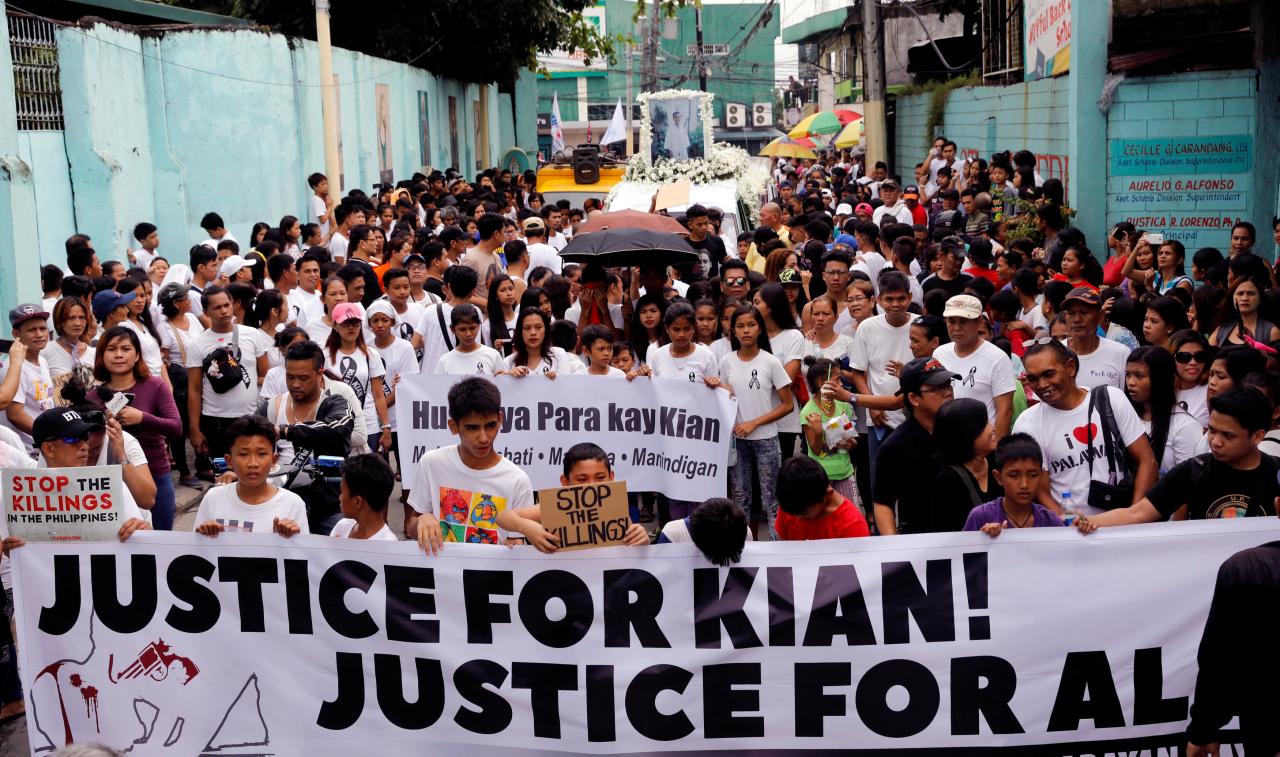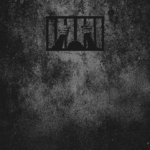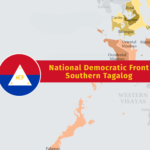It has been the seventh year since the killings of Kian delos Santos, Carl Arnaiz, and Reynaldo “Kulot” de Guzman at the height of the former Duterte administation’s bloody anti-drug war, yet justice remains elusive for the three youths.
“Hours before the killing of Kian delos Santos and two days before Carl and Kulot’s murders, Duterte gave assurance to policemen that he had their backs, even if they were to be convicted of following his orders to kill drug suspects. The cops had this in mind when they dragged Kian in full view of CCTV cameras and gunned him down in an alley,” Karapatan said in a statement.
According to Karapatan, their cases stand out among the more than 30,000 killings in Duterte’s drug war that unlike in the cases of so many other victims, there were witnesses and other incontrovertible proof that secured convictions for the three policemen in 2018.
Meanwhile, the rights group noted the failure to achieve full justice and accountability, despite the conviction of the policemen, as Rodrigo Duterte, Sen. Ronald ‘Bato’ dela Rosa, and others responsible for the drug war killings remain free.
Day of reckoning
On August 13, retired Supreme Court Justice Antonio Carpio said the International Criminal Court (ICC) will likely issue the arrest warrant against the perpetrators of Duterte’s drug war sometime in September this year.
“I think the day of reckoning is coming closer,” Carpio added.
This is the second time a public announcement has been made regarding the ICC’s issuance of an arrest warrant since Former Sen. Antonio Trillanes IV, who is also among those who filed a complaint in the international court following the anti-drug war killings under Duterte which started during his time as mayor of Davao City, revealed a confidential document from the ICC’s Office of the Prosecutor last July.
The said document tagged Sen. Ronald Bato dela Rosa, retired PNP chief Oscar Albayalde, PNP Northern Luzon Command chief Romeo Caramat Jr., National Police Commission chief Edilberto Leonardo, and PNP Drug Enforcement Group chief Brig. Gen. Eleazar Matta as suspects related to the anti-drug war killings.
National Union of People’s Lawyers National Capital Region secretary-general and ICC assistant to counsel Atty. Kristina Conti expressed confidence that the arrest warrant will come within the year but advised against making public announcements, noting that the issuance of arrest warrants is typically confidential. She explained that such arrests are usually only disclosed after the individual has been brought to The Hague in the Netherlands, where the international tribunal is based.
Atty. Conti also identified current Davao City Police Chief Col. Lito Patay as the worst violator in the anti-drug war, being part of the so-called “Davao Boys” or a group of police officers from Davao City reassigned to Batasan Station in Quezon City Police District under former Duterte administration. Though Patay was not among the initial suspects mentioned by the ICC, Atty. Conti noted that there is a redacted portion in the ICC list, suggesting that Patay may or may not be included.
Patay logged the highest number of killings during anti-drugs operations, according to a Reuters investigative report in 2017.
Meanwhile, Sen. Dela Rosa suggested that Congress can pass a bill to ban the country’s cooperation to ICC as it would pose a ‘constitutional crisis’.
“That is too selfish of a reason to pursue this kind of bill. That is just a waste of what is being paid to him as a legislator,” said Atty. Conti.
Marcos Jr.’s drug war
On May 9, Marcos Jr. reiterated his firm stance that the country will neither cooperate with the ICC not recognize its jurisdiction. However, the international court still hold jurisdiction over the alleged crimes committed while the Philippines was a member as per Rome Statute.
Marcos Jr.’s refusal to acknowledge the ICC comes amidst continued reports of drug-related killings that remain persistent under his watch.
According to Defend CAMANAVA, the Marcos Jr. administration has perpetuated the controversial campaign, with little sign of abating the violence that marked his predecessor’s term.
UP Third World Studies Center’s Dahas Project reported 748 drug-war related deaths since Marcos Jr. sat in power. The report added that state agents, which include the Armed Forces of the Philippines, Philippine National Police and paramilitaries, were responsible for the 34.3% of the killings during the second year of Marcos Jr.’s drug war.
“This war is not truly for a genuine societal reform but merely to showcase the iron fist of a fascist administration. This war only targets the poor to demonstrate the government’s bureacracy and tyranny. Instead, it would be more beneficial if the government focused on other societal issues. It is also important to address the root causes that drive people to drug use such as lack of job opportunities, low wages, rising prices of goods, and so on,” said Defend CAMANAVA in their statement.



